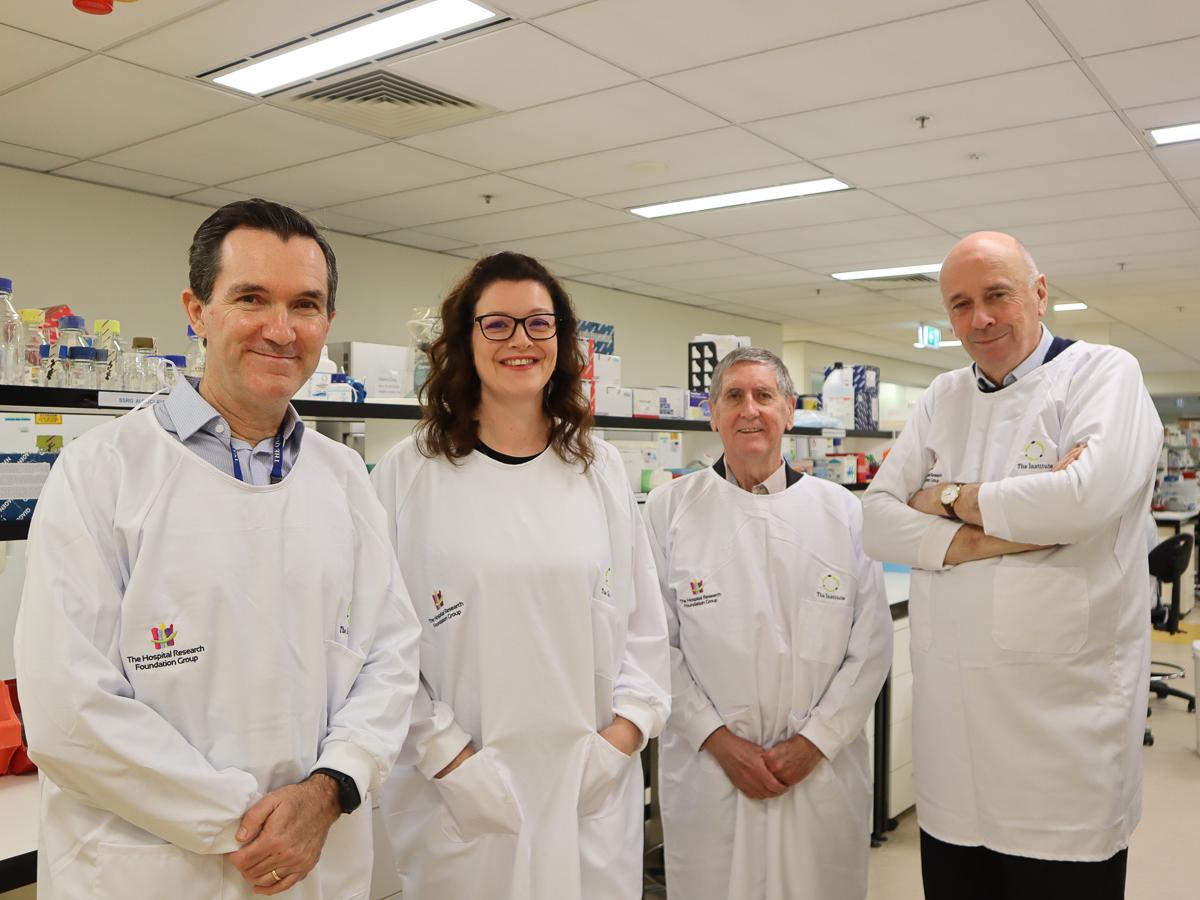
University of Adelaide's Professor Timothy Price, Dr Virginie Gaget, consumer advocate Steve Pendry and Professor Guy Maddern discuss the importance of the FMT trial.
South Australian and Victorian patients with pancreatic cancer will be able to participate in a world-first human comparative clinical trial that aims to improve symptoms and survival outcomes using faecal transplant in combination with chemotherapy compared to placebo.
The University of Adelaide is leading the trial in conjunction with Epworth HealthCare, the Central Adelaide Local Health Network, Flinders University and BiomeBank and is seeking suitable participants.
Symptoms are generally felt at a later stage of the disease, leading to late diagnosis and a survival rate of 25 per cent one year after first diagnosis and of around 13 per cent after five years.
To be eligible for the trial, participants must meet a strict criterion including having had an initial CT scan and having a primary and inoperable pancreatic tumour at its first assessment.
"The usual treatment process for inoperable pancreatic cancer is chemotherapy, but the survival outcomes are low," said Head of Clinical Oncology Research at The Queen Elizabeth Hospital, Professor Timothy Price.
"Once you start experiencing symptoms, you are often in the advanced stage of the disease."
The trial will be run at The Queen Elizabeth and Royal Adelaide Hospitals in Adelaide, through University of Adelaide's Professor Guy Maddern and Professor Price, while Associate Professor Sumitra Ananda will take lead at the Jreissati Pancreatic Centre at Epworth.
"The microbes living in us (e.g. in our gut) impact our health, and changes in gut microbes can be associated with cancer," said University of Adelaide Senior Researcher and Study Chief Scientist Dr Virginie Gaget.
"A recent animal study demonstrated that faecal transplant, or the transfer of stool from a healthy individual or long-term cancer survivor to a sick animal can reduce the size of pancreatic tumours, likely by restoring the balance of microbes in the gut and by resetting the immune system.
"We used this knowledge to design this clinical trial. We hope that the transplant can reproduce the results from the animal study and provide better treatment solutions and improved survival outcomes for these patients.
"The goal of the faecal transplant is to both reset the immune system to prepare the body for the chemotherapy treatment, as well as to restore the gut microbes that would likely be lost during chemotherapy.
"What also makes this study unique is our multidisciplinary approach and collaboration, where we are looking outside the box to try to tackle this serious and complex disease."
"By collaborating in this groundbreaking study, we aim to advance our understanding of the microbiome's impact on cancer and open up new therapeutic pathways that were previously unexplored in pancreatic cancer," said Associate Professor Ananda.
To register your interest in the trial, call Dr Gaget on 0479 178 692.






